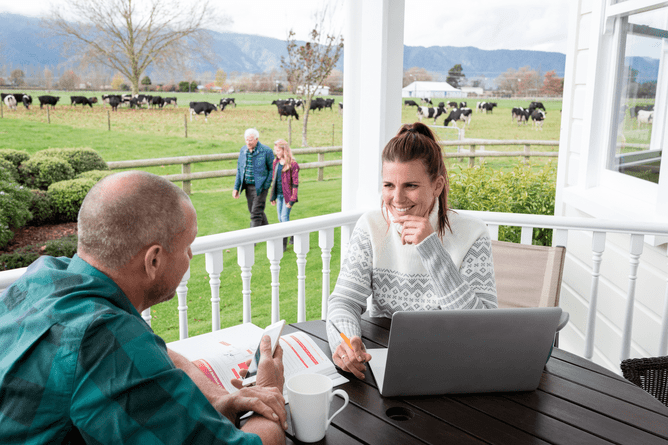Head of Product, Dr. Todd White, wrote an interesting opinion piece about the use of data in agriculture.
A recent opinion piece published in a New Zealand farming newspaper criticised some aspects of today’s agriculture that I believe are core to its continual advancement. The article took issue with how “computer-generated advice” is being increasingly used to help guide farmers to make management decisions.
It went on to imply that science is biased because it loves to average data so it can fit into the equations and models that scientists design. It also questioned the ability of rural professionals today, stating that their advice is overly reliant on the outputs of software, leading farmers to potentially drive their farm systems beyond their inherent capabilities.
Everyone is entitled to their own opinion – ideas and debate are a cornerstone of a healthy society that looks to improve over time. Here’s a short summary of what I believe and why I don’t agree with the positions and sentiment expressed in the article.
It’s puzzling that farming is often portrayed as simple and then therefore assumed that the approach to it should be too. The evidence suggests otherwise. Not all farmers are the same – not just in the sense of the types of farming systems they operate, but in their debt levels, attitudes toward technology, size of farm, number of staff and stage of career.
Similarly, not all farms are the same – they differ in climate, soils, altitude, aspect and topography. Beyond the farm gate, things such as product prices, exchange rates, rules and regulations also continually change. All these things combine and interact in dynamic and unpredictable ways; being an effective farmer is complex and challenging.
A lot of New Zealand farmers are exceptionally good at handling this complexity. Through experience and/or gifted ability, they are world class at combining all these sources of information and making decisions that maximise the profitable conversion of pasture into meat, milk or fibre. There’s no doubt there is an artistry to their craft, but there’s also planning, measurement and decisions based on data.
There’s also no doubt that farming is an unusual business because it often defines the essence, the identity of the people involved. Farmers don’t work on a business; they work in it. That’s what’s great about it. But farming practice has also been shaped and powered by science. Productivity and sustainability advances in agriculture haven’t occurred by accident, they have come from fundamentally understanding the chemistry, biology and physics of climate-soil-plant-animal systems.
Contrary to what the article author implied, the purpose of science is not to generate average data to agree with established understanding and models, rather its purpose is to unbiasedly test current understanding and challenge excepted norms and thinking.
Similarly, the purpose of the mathematical models derived from scientific understanding of these complex systems is not to replace the need for decision making by farmers. Instead, their purpose is to identify potential consequences of different management decisions before they are implemented. Their purpose is to save time and expense by rapidly testing and comparing options, and to help refine the scale and timing of chosen management option(s).
They are there to complement a farmer or rural professional’s intuition and thinking, not to replace it. For example, the FARMAX technology does not replace the need for good stock management, but it does help inform farmers and consultants by identifying potential production, financial and environmental outcomes of the decisions they implement.
Regardless of people’s attitudes to data, technology and science, the simple fact is that farming has changed, it will continue to change greatly, and data will drive that change. Food is always going to be in demand, but so are consumers wanting evidence (data) that the food they consume is good for them and the planet.
Today’s new farmers have much greater expectations of being able to make decisions based on data, just like any other industry or profession does. The drivers of these expectations are numerous: better work-life balance, health and safety considerations, the increasing cost of labour and the accelerating development and use of remote sensing, AI and robotics.
So, I believe the future of agriculture will not suffer “death by data”, but rather science, data, modelling and software will be pivotal to meeting the challenges New Zealand faces in order to keep producing the best food the world.

